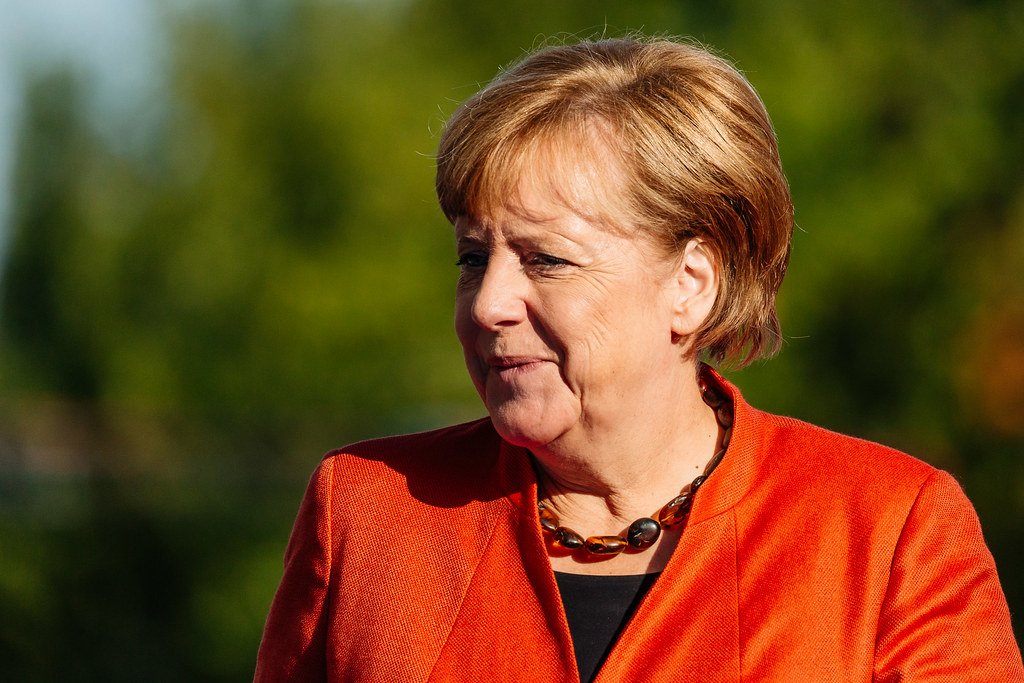Numerous protests against the authorities’ sluggish struggle with climate change and the growing popularity of the greens indicate that there is one spot left on the reputation of the upcoming chancellor that needs to be removed.
Angela Merkel has been preparing a draft climate change paper for several weeks, and they will be released soon. She intends to restore her image of the “climate chancellor”. However. she was given a cold shoulder back at home.
One of the largest German newspapers, Bild, called government action to combat climate change “fake.” The journalists accuse her of offering large projects and programs and not implementing them.
Now she is facing a serious problem: it is necessary to somehow combine the calls of society for more energetic actions and the calls of the younger partner in the ruling coalition, the Social Democrats, to defend the competitiveness of the German export-oriented economy. Recall, that the country has already been fairly plagued by the effects of the trade wars.
Merkel's pragmatism was especially evident in her relationship with the all-powerful German car industry. In 2013, she defended the world-famous brands BMW, Audi and VW, opposing European Union plans to limit carbon dioxide emissions, which would hit German manufacturers of expensive cars especially hard. She reluctantly agreed to tough measures even during the dieselgate provoked by German VW.
The government was not really enthusiastic about the ambitious plans of the largest automakers to develop models of electric vehicles, and reacted indifferently to the need to build charging stations. Such an attitude thwarted Merkel’s own plans to have a million electric cars on the streets of German cities in 2020.
A similar picture was observed in the nuclear energy sector. At first, she extended the period of complete abandonment of nuclear power plants to 14 years. However, after the accident at Fukushima NPP, she changed her mind and ordered the immediate closure of old plants.
Merkel’s focus on climate-related issues now seems to have an impact on voters, judging by recent polls, and is bearing fruit. The CDU, which was inferior to the Green party in the Forsa poll by 0.3% back in June, is now ahead by the same 0.3%.
It seems that now Angela Merkel is determined to seriously deal with climate change. However, critics believe that she is late. Social Democrats can leave the coalition in December this year. In this case, she will have no time to finish work on the draft law and conduct it in the Bundestag.
source: bild.de, bloomberg.com
Angela Merkel has been preparing a draft climate change paper for several weeks, and they will be released soon. She intends to restore her image of the “climate chancellor”. However. she was given a cold shoulder back at home.
One of the largest German newspapers, Bild, called government action to combat climate change “fake.” The journalists accuse her of offering large projects and programs and not implementing them.
Now she is facing a serious problem: it is necessary to somehow combine the calls of society for more energetic actions and the calls of the younger partner in the ruling coalition, the Social Democrats, to defend the competitiveness of the German export-oriented economy. Recall, that the country has already been fairly plagued by the effects of the trade wars.
Merkel's pragmatism was especially evident in her relationship with the all-powerful German car industry. In 2013, she defended the world-famous brands BMW, Audi and VW, opposing European Union plans to limit carbon dioxide emissions, which would hit German manufacturers of expensive cars especially hard. She reluctantly agreed to tough measures even during the dieselgate provoked by German VW.
The government was not really enthusiastic about the ambitious plans of the largest automakers to develop models of electric vehicles, and reacted indifferently to the need to build charging stations. Such an attitude thwarted Merkel’s own plans to have a million electric cars on the streets of German cities in 2020.
A similar picture was observed in the nuclear energy sector. At first, she extended the period of complete abandonment of nuclear power plants to 14 years. However, after the accident at Fukushima NPP, she changed her mind and ordered the immediate closure of old plants.
Merkel’s focus on climate-related issues now seems to have an impact on voters, judging by recent polls, and is bearing fruit. The CDU, which was inferior to the Green party in the Forsa poll by 0.3% back in June, is now ahead by the same 0.3%.
It seems that now Angela Merkel is determined to seriously deal with climate change. However, critics believe that she is late. Social Democrats can leave the coalition in December this year. In this case, she will have no time to finish work on the draft law and conduct it in the Bundestag.
source: bild.de, bloomberg.com





